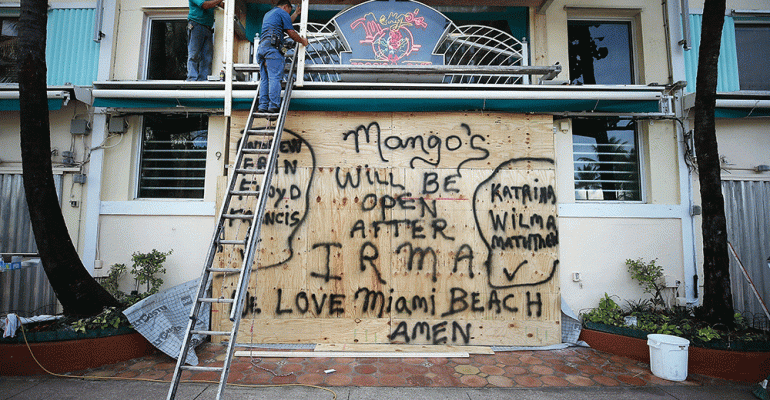 This post is part of the On the Margin blog.
This post is part of the On the Margin blog.
So many restaurants were closed during hurricanes Harvey and Irma that it turned the U.S. jobs report upside down.
The number of jobs declined by 33,000 in September, according to the latest federal data — the first time that employment declined since 2010. The decline was surprising, and sent stocks down on Friday.
But the entire decline could be traced to the impact of hurricanes on one industry: Restaurants. The industry lost 105,000 jobs during the month.
According to Business Insider, in fact, the 111,000-job decline in hospitality and leisure industry employment in September was the biggest one-month job loss for that sector in the history of the jobs report.
The U.S. Bureau of Labor Statistics blamed that decline on hurricanes, noting that many workers were off payrolls as the twin storms hit Texas and Florida and closed thousands of locations.
Restaurants had been on a long string of job growth. Over the past year, the industry has added an average of 24,000 jobs.
Indeed, since February 2010, restaurants have added 2.5 million workers — increasing employment by 27 percent over that period. The industry has led post-recessionary job growth.
The industry employs 11.7 million Americans, or 9.4 percent of the total private workforce.
While the number of restaurant workers declined in September, other elements of the jobs report should give solace to operators, while also giving them some concern over costs.
The unemployment rate fell to 4.2 percent in the month. Average earnings in the month increased by 2.9 percent, as the labor shortage helped drive up wages.
Not surprisingly, average earnings increased at a higher rate for hospitality workers, which the restaurant industry dominates. Hospitality worker earnings increased 3.2 percent during the period. All that hiring is driving up earnings and therefore operator labor costs.
But higher pay means more discretionary income, and that should keep consumers spending. And for all the concerns in the industry at the moment, people still like spending money to eat out.
Jonathan Maze, Nation’s Restaurant News senior financial editor, does not directly own stock or interest in a restaurant company.
Contact Jonathan Maze at [email protected]
Follow him on Twitter: @jonathanmaze





